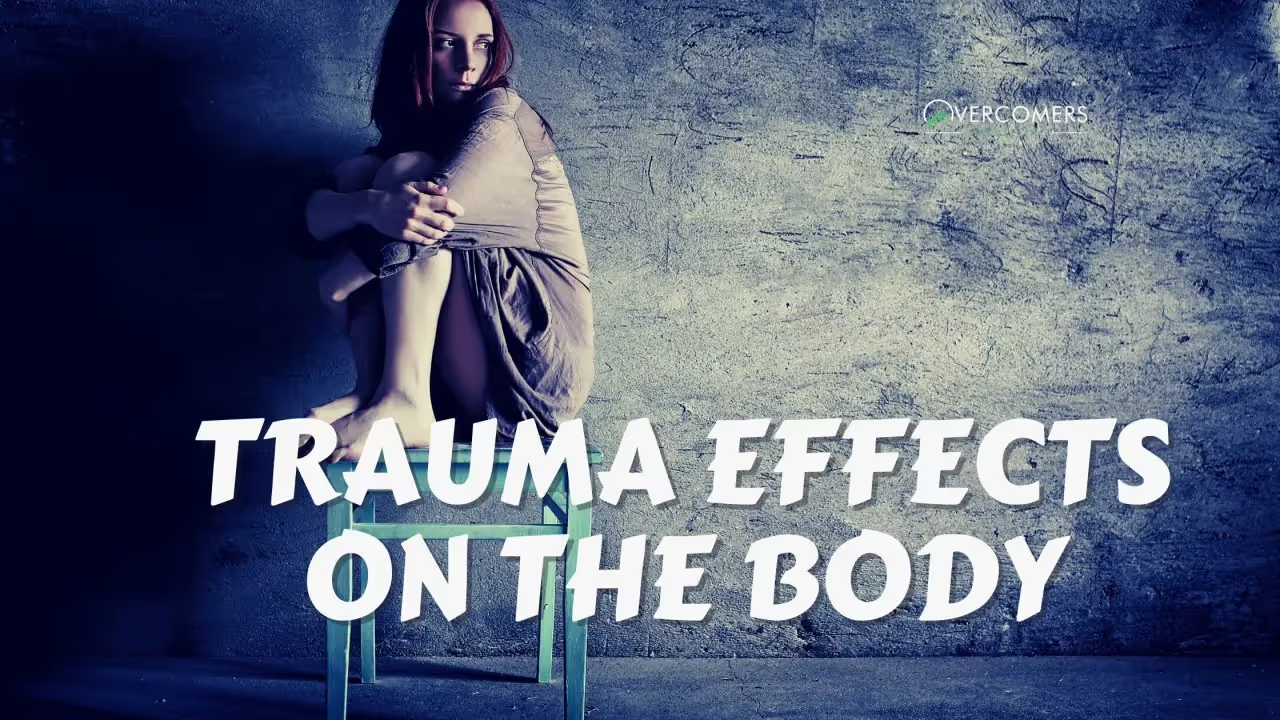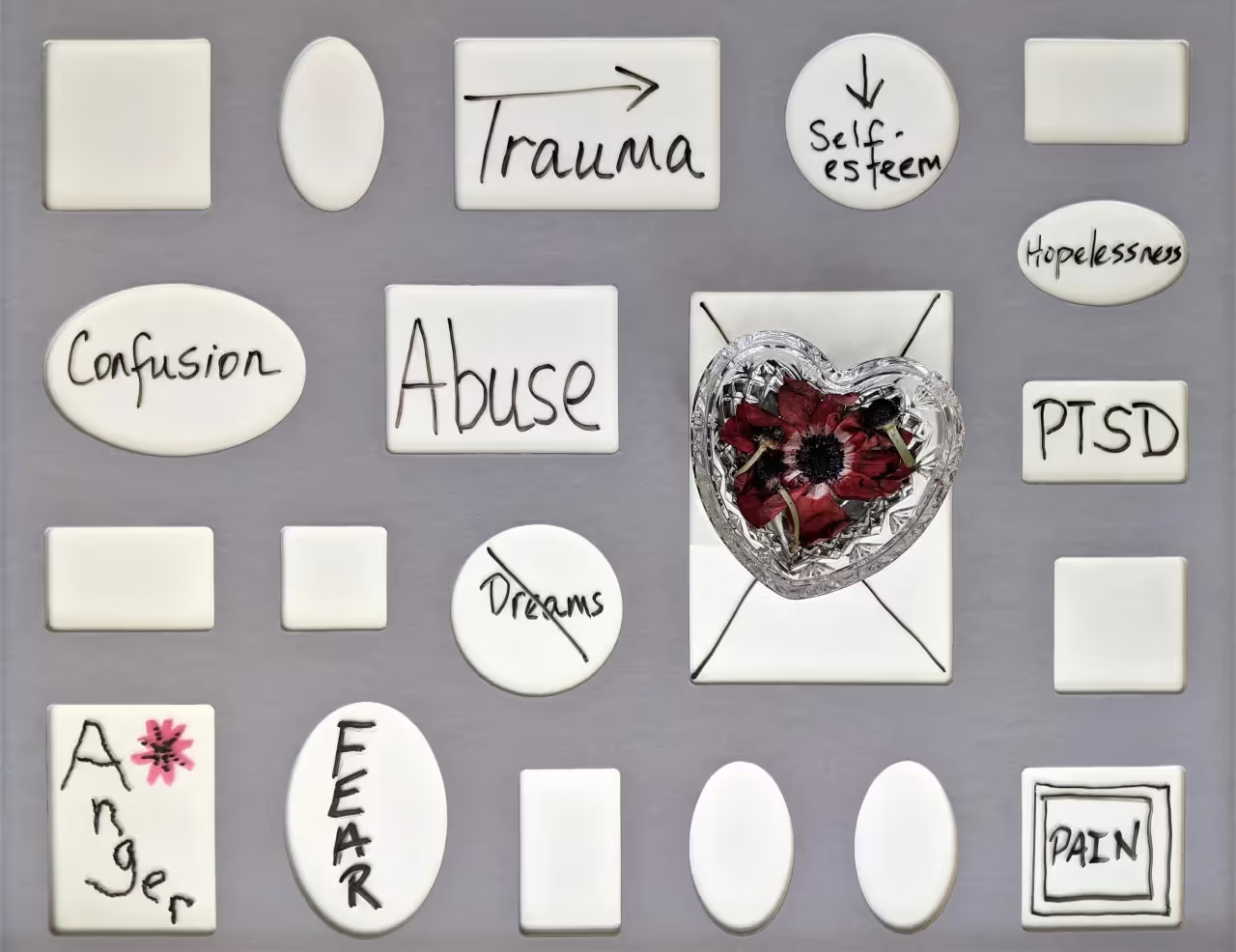We often think of trauma as a mental or emotional problem: but, trauma also has effects on the body. And, not just in your heart.Trauma is a serious issue....

We often think of trauma as a mental or emotional problem: but, trauma also has effects on the body.
And, not just in your heart.
Trauma is a serious issue. Research shows that up to 90% of adults in the United States have experienced trauma in their lives.
Trauma has long-lasting impacts on every part of your life.
Unfortunately, it's common for people to tell traumatized people to "Get over it," or, "Forget about it."
This is because they think that trauma only exists in the past. It doesn't.
Trauma lives on in your body long after the events that caused it have ended.
People who have experienced trauma are at much higher risk for health problems such as heart disease, stroke, and diabetes.
It's important to remember that there is no normal or correct way to respond to trauma.
Some of the documented trauma effects on the body are confusion, numbness, sadness, anxiety, agitation, physical arousal and rigidness, and less expressiveness.
These are typically most pronounced immediately after the traumatic event.
However, these can develop into a more permanent response if the traumatized person develops PTSD.
Research says that 1 in 13 Americans will develop PTSD in their lifetime.
PTSD stands for post-traumatic stress disorder. It is a disorder that causes the body to become permanently stuck in a stress or survival response.
Women are statistically more likely to develop PTSD than men.

The effects of trauma on the body include a permanent stress response.
This includes more tense and constricted muscles that may result in long-term fatigue or muscle aches.
Stretching or getting a massage might help with this, but your body will need to learn it's no longer in danger in order to stop the contracting impulse.
Your body has a stress response system that is thrown off by trauma.
This happens because the body is placed into a permanent stress response.
When your body is stressed, it releases a stress hormone called Cortisol.
While Cortisol's purpose is to help your body heal, it can cause damage when produced long-term like it does after trauma.
It increases your likelihood of developing heart disease and depression.

People who have experienced trauma often struggle with emotional regulation and coping.
Trauma might also trigger altered perceptions.
Traumatized people are in a state of high alert and might respond to non-threatening situations as if they were dangerous.
People who are traumatized typically experience difficult and negative emotions on an everyday basis.
They might feel uncontrollable emotions such as anxiety, anger, intense fear, flashbacks, and depression.
They might find themselves disengaging from conflict or find work more stressful than they used to.
They might feel too much fear and anxiety to go about their normal lives.
They might struggle with being overly dependent or too easily discouraged.
Seeking counseling for trauma can help with these effects.
This article has already mentioned that trauma produces a permanent state of hypervigilance.
There is a physical reason for this and it is the changes that trauma makes to your brain.
The three main parts of the brain affected by trauma are the hippocampus, the amygdala, and the prefrontal cortex.
The hippocampus controls your memory.
The amygdala is your brain's instinctual and emotional center.
The prefrontal cortex regulates your emotions and impulses.
All three parts are important for managing stress and they lose the ability to do that well after trauma.
Your brain cannot distinguish between a traumatic experience that happened in the past or the memory of it.
This means that your amygdala gets placed into frequent overload: it perceives any memories of the event as actual threats.
When your amygdala gets kicked into a stress response from a traumatic memory, it affects your brain's ability to regulate emotions and instincts.
Your brain is placed into a reactive, protective place.
This impedes your ability to perform long-term planning and make rational decisions.
Your brain's ability to function and remember properly becomes physically injured by the trauma.
Often, we think our trauma isn't significant enough to warrant an extreme response. However, this isn't true.
The response to trauma isn't determined by the severity of the trauma, it is determined by an individual body's reaction to it.
For example, trauma experienced as a child can cause long-term changes to the body that affect your health.
This is because your body grows up with survival as a learned response.
In addition to increasing cortisol production which increases stress-related illnesses, trauma also reduces your body's ability to produce another hormone called oxytocin.
Oxytocin has been called "the love hormone," since it is produced by a mother caring for her children or when you fall in love.
Trauma actually reduces your ability to produce oxytocin and the accompanying feelings of love, connection, and sociability. Oxytocin is also connected to good moods which means you might experience apathy or boredom because of reduced production.
The long-term effects of trauma on the body are tragic.
They put people at higher risk for many diseases, including heart disease, stroke, and diabetes.
Trauma also increases people's risk of becoming an addict.
People who don't understand that their physical symptoms are caused by trauma might choose self-medication to deal with it.
Seeking trauma treatment is the first step to getting control of your life and body back.
Trauma counseling can give you the tools to cope with stress without worsening the impact on your body
While some triggers may diminish over time as you progress in therapy and healing, others may persist but become more manageable through the development of coping strategies and increased resilience.
If you have experienced trauma and believe it may be contributing to your addiction, discuss your concerns with a mental health professional who can assess your needs and recommend appropriate treatment options.
Yes, trauma-informed therapy can be adapted to meet the unique needs of children and adolescents, providing age-appropriate interventions and support.
Trauma-informed care addresses the root causes of addiction by helping individuals process and heal from past traumatic experiences. By addressing these underlying issues, individuals are better equipped to develop healthy coping mechanisms and maintain lasting recovery.
Trauma-informed care is an approach to therapy and counseling that recognizes the prevalence and impact of trauma on individuals, families, and communities. It emphasizes creating a safe and supportive environment for clients, understanding the effects of trauma on mental health, and tailoring treatment plans to meet the unique needs of clients who have experienced trauma.
Consider implementing time management strategies to prioritize self-care activities, such as scheduling specific times for exercise, relaxation, or socializing. Communicate with your therapist about the importance of self-care and work together to ensure it is integrated into your healing journey.